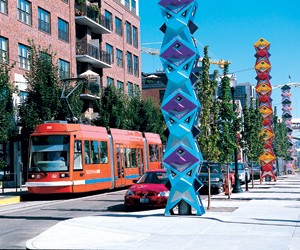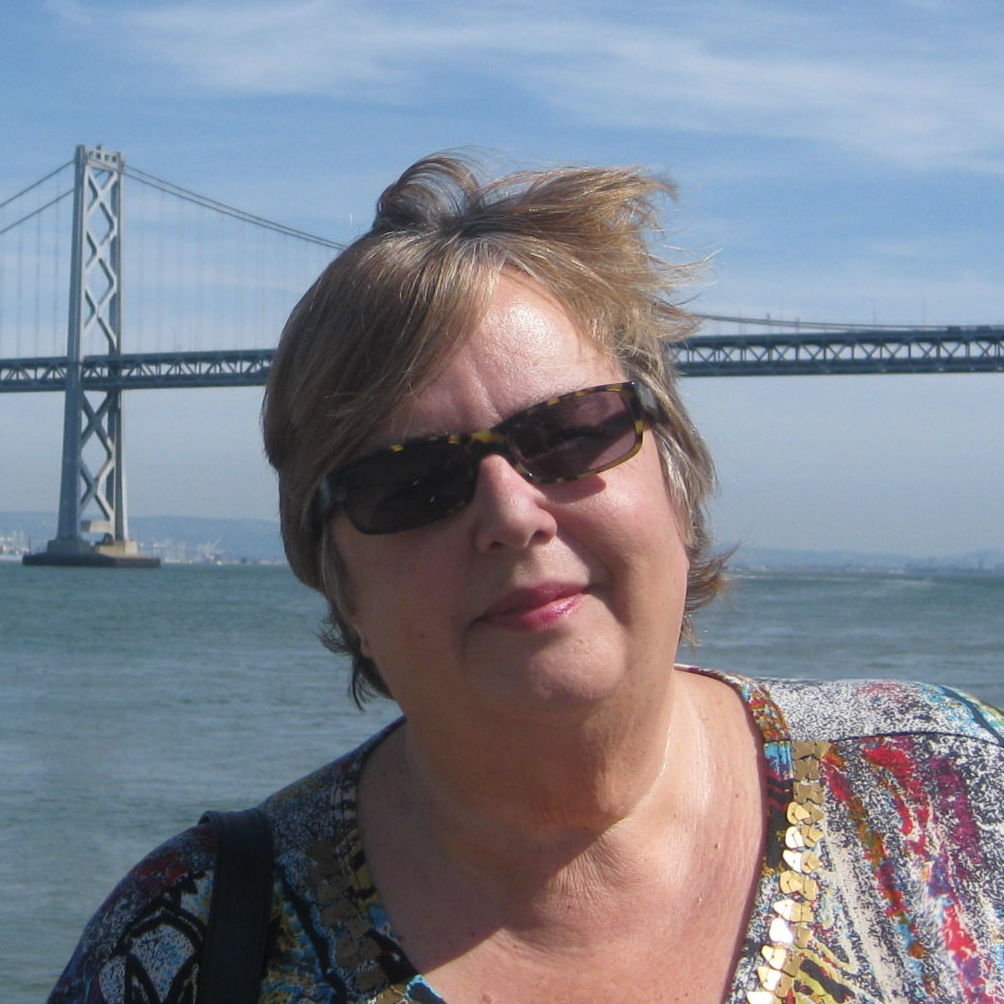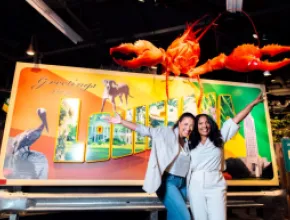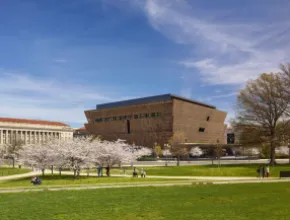From its bustling west side to emerging east side, Portland is laying claim to being the hippest, most creative city in America. Vibrant neighborhoods are springing up where once only decaying warehouses stood, coming alive with designer shops, art galleries, acclaimed restaurants, wine bars, microbreweries and boutique distilleries.
Far from being left out of the scene, Portland’s downtown core is flourishing as well, with local chefs, purveyors, hoteliers and other entrepreneurs establishing new businesses there even during the recent economic downturn. It all adds up to Portland being a fresh, new meetings destination for groups to consider.
A Meetings Magnet
Does Portland’s growing reputation as a place populated by creative, entrepreneurial people have a positive impact on what it delivers for meetings? You bet it does, says Mike Smith, vice president of convention services for Travel Portland.
The city’s wealth of unique shops (located in a state with no sales tax), chef-driven restaurants and purveyors of everything from artisan cheese to cocoa are part of its appeal as a meetings destination, according to Smith. Added to that is a wealth of local talent that can be called upon to enrich meetings content.
“For example, we’ve had James Curleigh, the president of locally based Keen Shoes, come in as a convention speaker, drawing rave reviews,” Smith says. “He’s a hilarious guy who runs a very green business and values CSR [corporate social responsibility].”
Local chefs can also play a part in enriching meetings content, he adds.
“The whole food side of Portland is world class, and planners are taking advantage of this,” Smith says. “Not only are they going out to local restaurants, but the chefs are coming to the groups. They’re doing things like taking people out to local farms where they can pick the ingredients for their own dinner. The chef will prepare the meal with them. It’s a lot of fun.”
onward in oregon
Portland is such a forward-thinking city that even its main venue, the 255,000-square-foot Oregon Convention Center, keeps ahead of trends. In 2004, it became the first convention center in the nation to receive LEED certification from the U.S. Green Building Council. Food and beverage, provided by in-house Pacific Wild Catering, emphasizes local, sustainable ingredients.
While Portland lacks a convention headquarters hotel, Smith says there is renewed interest at the city government level in getting a property developed adjacent to the convention center.
“The talk is getting serious about it, now that the economy has come back,” he says. “Our hotels are running good occupancies—we’re almost back to where we were before the economic downturn. So we’re getting to the point where we can support a major new hotel.”
In the meantime, Portland’s group-oriented hotels work as an effective team to minimize any inconvenience of not having a headquarters property, according to Smith.
“We have a very tight hospitality community that knows it has to work together in order to get business,” he says. “We focus on getting the basics right, so planners have a comfort level about meeting in Portland.”
Portland’s meetings-friendly hotels include The Nines, Doubletree Hotel Portland, The Benson, Courtyard Portland City Center, Governor Hotel, Crowne Plaza Portland–Downtown Convention Center, Hilton Portland & Executive Tower, Portland Marriott Downtown Waterfront and Sheraton Portland Airport Hotel.
The city is also known for its boutique properties, which include the Ace Hotel, Hotel Vintage Plaza, Hotel Monaco Portland, Heathman Hotel and the new Crystal Hotel.
Eastside Connection
Among the most exciting developments for the city is the extension of the Portland Streetcar, set for completion in September. A new line will make stops along the eastern side of the Willamette River for the first time.
According to Marcus Hibdon, spokesman for Travel Portland, the line extension is serving as a catalyst for the emerging Central Eastside Industrial District, already known for its boutique distilleries (see sidebar, page 18) as well as new restaurants and retail shops.
“Its impact on the Eastside is expected to be similar to what happened back in 2001 when an earlier streetcar extension came to the Pearl District, transforming it into one of most popular areas,” he says. “A lot of businesses are moving to the eastside in anticipation of the streetcar.”
The new service, which will run north and south along the river, will have the added benefit of making it easier for attendees to travel from the Oregon Convention Center, also on the Eastside, to attractions in the vicinity, according to Hibdon.
“Attendees who want to take an hour or two will be able to hop on the streetcar and check out some of the new neighborhoods that were previously harder to get to,” he says.
Along with distilleries, the Central Eastside Industrial District is also home to an eclectic lineup of coffee roasters, such as Water Avenue Coffee (which operates the American Barista and Coffee School), Clive Coffee and Coava Coffee, as well as brewpubs, including Hair of the Dog Brewing Company and Cascade Brewing Barrel House.
The district also includes a portion of East Burnside Street called Lower Burnside, known for fashion-forward boutiques and notable restaurants, including Le Pigeon, run by James Beard-award winner Gabriel Rucker. The area is also home to the Jupiter Hotel, a boutique property with meeting space for up to 300 people, where the Doug Fir Lounge is a popular live music venue for indie rock.
To the south, the Hawthorne district beckons with two branches of the city’s famous Powell Books, plus shops selling indie-designed fashions, vintage clothes and specialty housewares. It’s also home to the Bagdad Theater and Pub, a beautifully restored Moorish-style theater where patrons can watch movies while enjoying specialty brews and pizza. The 500-seat theater is available for private events, including multimedia presentations.
Westside Wonders
Portland’s west side, which includes the downtown center and Pearl District, is also a hive of new business activity, according to Hibdon.
“While the recession slowed things down in some parts of the city, it created new opportunities for restaurateurs and other business owners to open locations downtown and in the Pearl District,” he says. “This has been great for visitors as it’s put even more great dining opportunities right near their hotels.”
Among the local chefs opening downtown locations is Gabriel Rucker, whose second restaurant is Little Bird Bistro. Other buzz-generating newcomers are Gruner and Nel Centro downtown and Oven & Shaker in the Pearl District.
Happily for groups, several of downtown’s hottest new restaurants offer private dining and catering. With cuisine influenced both by Europe’s Alpine region and the Pacific Northwest, Gruner offers seated private dining for groups up to 50 and also has the Glacier Room seating up to 14. Nel Canto, which serves dishes inspired by the French Riviera, has private dining space for up to 30 and provides catering for the adjacent Hotel Modera, which offers banquet space for up to 80.
In a downtown location bordering the Pearl District, the cutting-edge Ace Hotel offers Clyde Common, patterned after a European-style tavern that serves family-style meals for groups up to 22 with advance notice. Clyde Common also provides catering for The Cleaners, an adjacent event space that the hotel, using some trademark Portland ingenuity, converted from a dry cleaning business.
California-based freelancer Maria Lenhart has been writing about the travel industry for more than 20 years.







